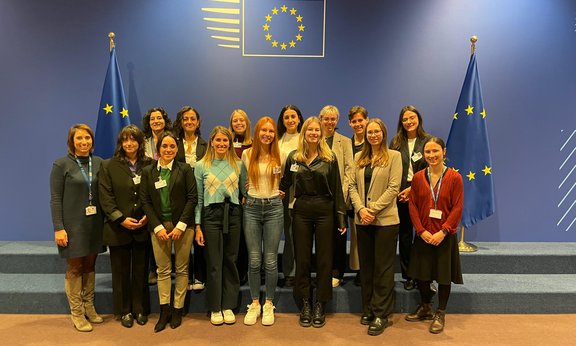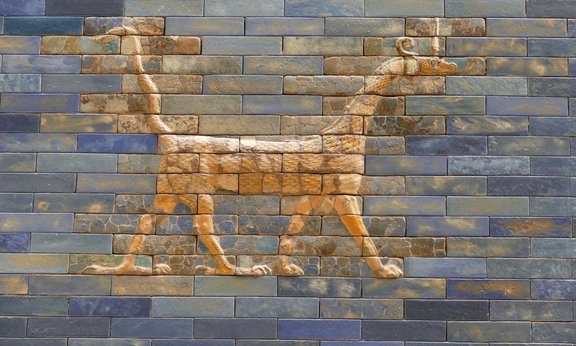Master’s Programme Translation Studies
Would you like to master translation technologies, understand the principles of terminology science and practise simultaneous and consecutive interpreting?
The Master’s Degree Programme in Translation Studies builds on the field specific competencies students gained in the Bachelor’s degree programme. The graduate students acquire knowledge in translation theory and professional knowledge in three different areas of specialisation (translation and translation technology, literary and audiovisual translation and theory and practice of conference interpreting) as well as technical knowledge and skills required for working as highly qualified translators and interpreters.
Please note: the language of instruction for this programme is German.
Study Code
UC 061
FAQ
The graduates have highly specialised knowledge in the respective areas of the study programme. They are able to demonstrate their competence in the fields of technical language translation or literary and media translation or simultaneous and consecutive interpreting through scientific correct formulation and argumentation and innovative problem solving. Moreover, the graduates of the Master’s Programme in Translation Studies are prepared for lifelong independent learning to be able to open up new areas and fields of activity in intercultural communication and translation in the future. The Master’s Programme in Translation Studies is science-orientated and is the foundation for a postgraduate doctoral study programme.
The Master’s Programme in Translation Studies builds on the skills acquired in a Bachelor’s Programme in Translation Studies and offers three options for specialisation:
- Technical translation and translation technology
- Literary and audio-visual translation
- Theory and practice of conference interpreting
Graduates of the Master’s Programme in Translation Studies have in-depth practical experience and competences and are qualified for the following occupational fields according to their expertise of specialisation chosen:
- freelance career as a specialist translator, literary translator or conference interpreter
- language mediating work in supranational political organisations, authorities, internationally acting companies, cultural institutions (literary or scientific publishing houses), in the media industry (radio, TV, film production companies) or in advertising agencies
- adult education, e.g. communication and intercultural advising or foreign language teaching
- academic work at (national and international) universities, universities of applied science and research institutions
- Moreover, the graduates of the Master’s Programme in Translation Studies are prepared for lifelong independent learning to be able to open up new areas and fields of activity in intercultural communication and translation in the future.
Graduates tracking: Shows which occupational fields students enter after graduation
Doctoral Programmes
More offers
Faculty of Language, Literature and Culture Department of Translation Studies Examination Office Information for students with disabilities
Curriculum
From the field

Zwischen Frites & Fachterminologie – Study Visit in Brüssel
775 km Zugstrecke, 31 km Fußmarsch, ein vierstöckiges Appartement, sieben besuchte Sehenswürdigkeiten, zwölf wissbegierige Studentinnen, vier Sicherheitskontrollen, drei Sitzungssäle, drei Portionen Frites Belges und viele aufschlussreiche Gespräche mit Beamtinnen – das war der Study Visit des Instituts für Translationswissenschaft (INTRAWI) zum SCIC in Brüssel im November 2023.

Popsong-Übersetzung und Phonomusicology am INTRAWI
Am 11.01.2024 hat Christina Richter Ibáñez der Universität Frankfurt am Main am Institut für Translationswissenschaft (INTRAWI) einen Online-Vortrag zum Thema „Popsong-Übersetzung und Phonomusicology: Strategien und Klanganalyse“ gehalten. Der Vortrag war Teil der Ringvorlesung Musik – Sprache –Translation von Ass.-Prof. Dr. Marco Agnetta.

Weniger Stress (beim Dolmetschen)? Antwort am INTRAWI
Stress beim Dolmetschen oder im Studium/Beruf? Nicht mit der richtigen Ernährung! Wie sehr Stressresistenz durch die richtige Ernährung gefördert werden kann, erläuterte Karin Elsner in ihrem Vortrag am 14. März 2024 am Institut für Translationswissenschaft (INTRAWI) eindrucksvoll.

Ein perfekter Einblick in die technische Redaktion am INTRAWI
Am 6. Juni 2024 fand am Institut für Translationswissenschaft (INTRAWI) ein sehr interessanter Vortrag von Claudia Hagendorfer zum Thema „TR trifft FÜ. Technische:r Redakteur:in trifft Fachübersetzer:in“ im Rahmen der von Martina Mayer organisierten Gastvortragsreihe „Perspektiven & Berufsbilder in Sprach- und Kulturmittlung“ statt.
Related studies

English and American Studies (Master)
Master of Arts

Educational Sciences (Master)
Master of Arts

Romance Studies (Master)
Master of Arts


















